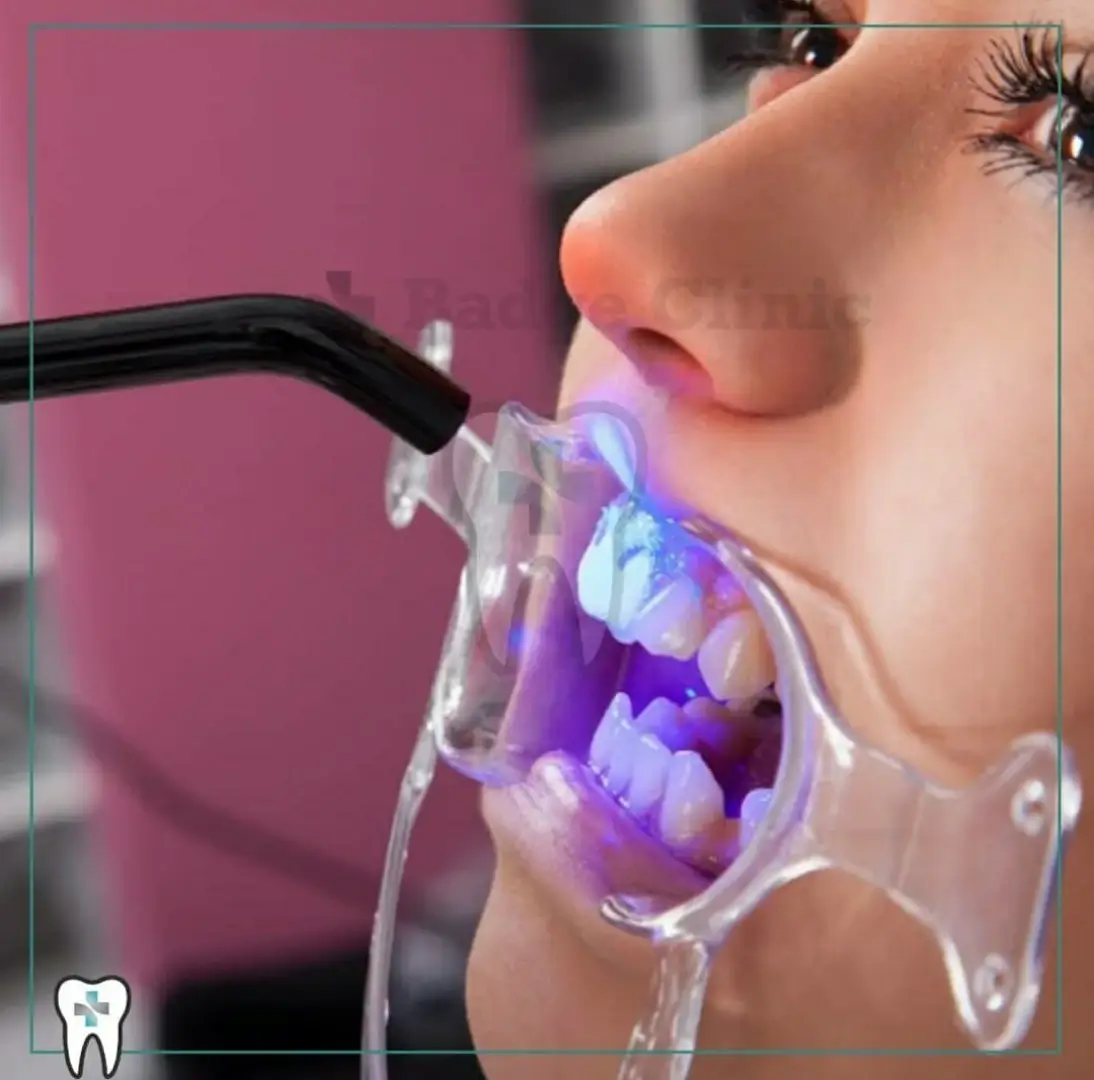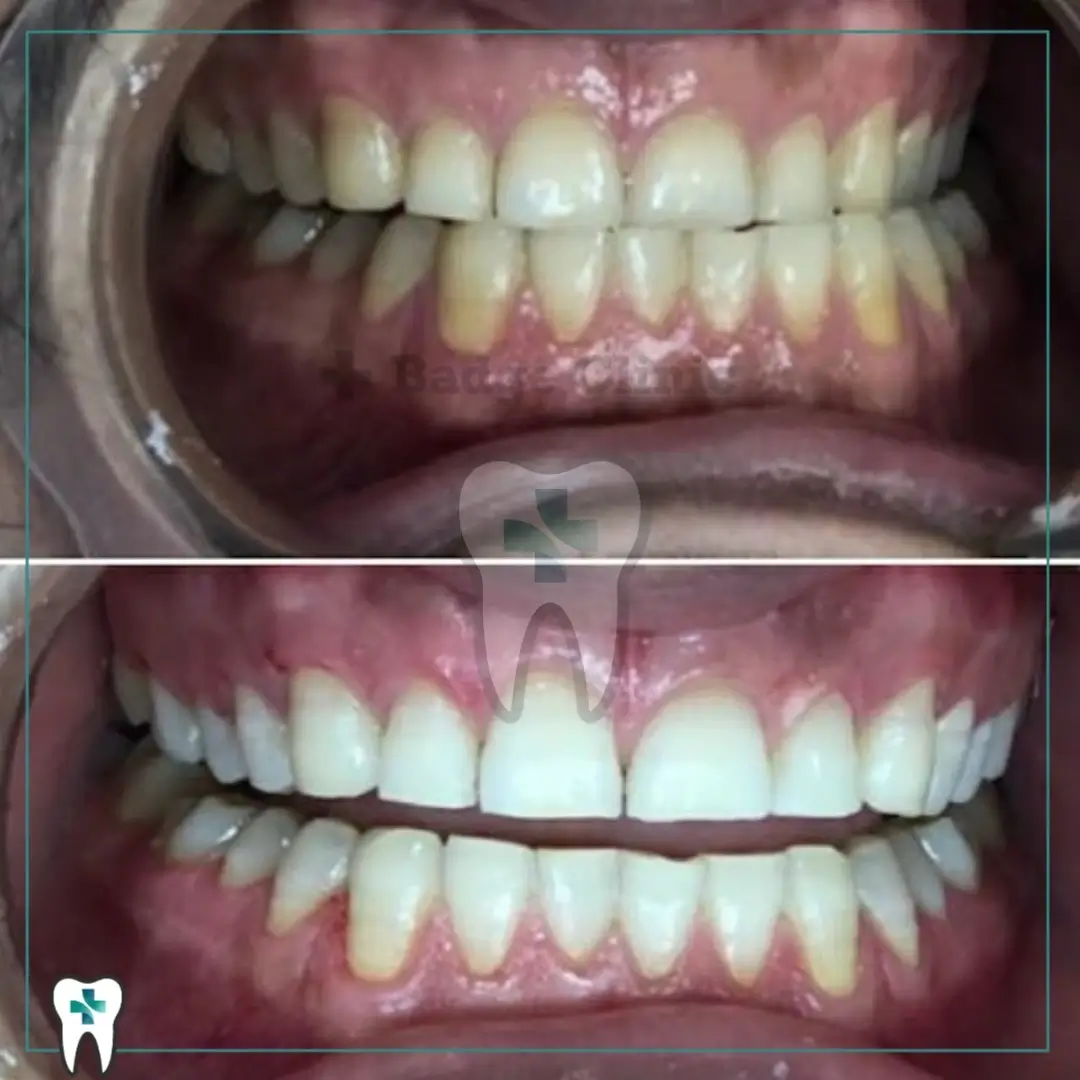Teeth whitening can be a very effective way of lightening the natural colour of your teeth without removing any of the tooth’s surface. Whilst it cannot make a complete colour change, it may lighten the existing shade if you have suffered from discolouration over the years. There are many reasons why you may want to have teeth whitening in Turkey, and at Badge Clinic we can ensure you will achieve the results you’re looking for. Everyone is different and just as our hair and skin colour vary, so do our teeth. As very few people have brilliant-white teeth, and our teeth can also become more discoloured as we get older, teeth whitening Turkey surgery can be the ideal way to restore your teeth to their natural colour, or improve their appearance if you’ve always wanted an improved smile. If you’re unhappy with the colour of your teeth and have tried various different teeth whitening methods, contact us today to arrange a free consultation. You may even be suitable for our smile makeover Turkey procedure that can give you that ‘Hollywood’ smile you’ve always wanted. Fill in our enquiry form today and we’ll contact you to discuss your needs further.
We’ll get back to you within one business day (via e-mail & WhatsApp)
The cost of having various types of cosmetic surgery in Turkey can be much less than in the UK or other countries, and here at Badge Clinic, we are happy to be able to offer affordable teeth whitening in Turkey. The individual costs of laser teeth whitening will vary between patients, which is why during a consultation we will discuss the costs of bespoke treatment for you. Some patients may be recommended for veneers Turkey surgery instead depending on the results they are looking to achieve. As not everyone will be suitable for teeth whitening, having veneers instead or dental implants could provide the winning smile you’re seeking.
The teeth whitening Turkey packages we can provide will include not only the cost of the procedure, but will also provide you with 5-star accommodation during your stay and VIP transfers between the airport and your hotel, as well as the hospital facilities. We strive to give all patients the luxury treatment when choosing Badge Clinic, to go alongside your newly improved smile.




Your teeth will not only naturally discolour over time, but by the choices we make in our lifestyle including the food and drink we consume. The surface of our teeth requires regular cleaning to help battle most of the common things that can cause discolouration, but even a good oral hygiene regime may not be enough. Teeth whitening in Turkey will help you:
If you have become increasingly concerned about the colour of your teeth and have tried at-home kits and whitening toothpaste to no success, having teeth whitening Turkey treatment can be ideal for you. Your suitability will be assessed at consultation, and if you are a good candidate, we can arrange a suitable package that works perfectly for you.
While teeth whitening is considered safe, you may experience some side effects from treatment including teeth sensitivity. Your teeth may become more sensitive following teeth whitening in Turkey. You may experience this on your first or second treatment, and it may diminish with time. You can expect the same level of patient care and dental professionalism at Badge Clinic that you would experience in the UK and other countries, providing a safe environment for laser teeth whitening.
Sensitivity from tooth whitening is always transient, which means if there is any sensitivity caused by the whitening, it should go away within one to two days after the treatment. You’ll then return to the normal state of sensitivity you had before starting the whitening process.
Typically you can expect the results from teeth whitening in Turkey to last from six months to two years, although some studies report results lasting up to ten years. How well your teeth stay white will depend on how well you follow aftercare instructions and maintain good oral hygiene.
You can help to keep your teeth white by cutting down on the amount of food and drinks you have that can stain your teeth. Don’t forget, by stopping smoking you can also help prevent discolouration and staining. We recommend the following tips to take care of your teeth: